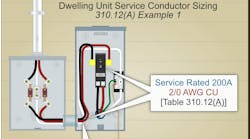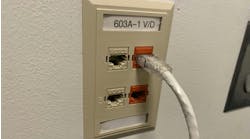A three-shift appliance plant hired a new plant engineer, who discovered nobody on staff was familiar with the National Electrical Code (NEC). The maintenance department did not even own a copy of it. The plant was full of code violations, some of them severe. Unfortunately, this situation is not uncommon.
In many cases, executive management assumes that because the plant was (presumably) built to code, it will stay up to code. This assumption does not account for equipment moves, upgrades, removals, and additions. Maintenance departments seldom hire licensed electricians. Even when they do, those people rarely end up in roles where their expertise would provide the necessary oversight, job planning, and engineering. The plant electrical engineer in all likelihood has never studied the NEC.
Work involving NEC Chapters 2 and 3 is more construction than maintenance, so is best outsourced to a qualified firm. To get a baseline of NEC competence for all electrical workers, a good strategy is to focus on Art. 110 (general requirements). A series of in-house classes can be conducted easily. To develop depth, however, individuals should be selected to study for a licensing exam.




